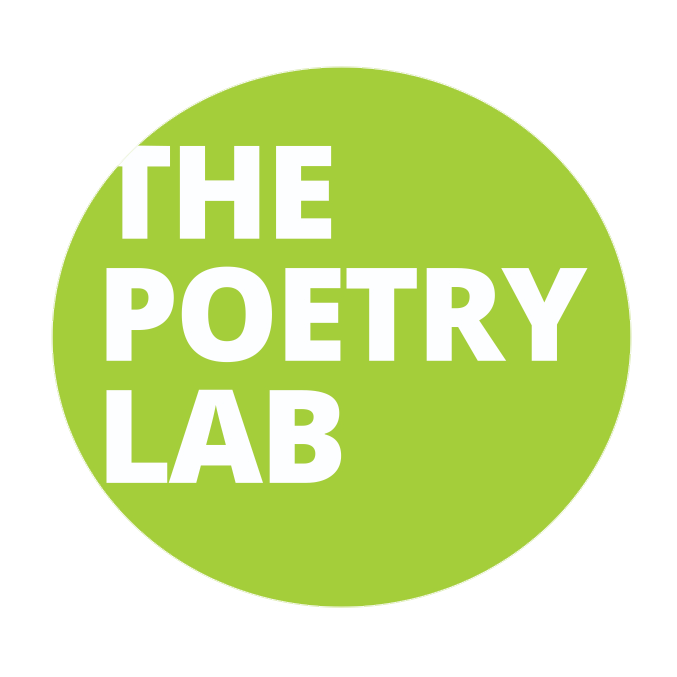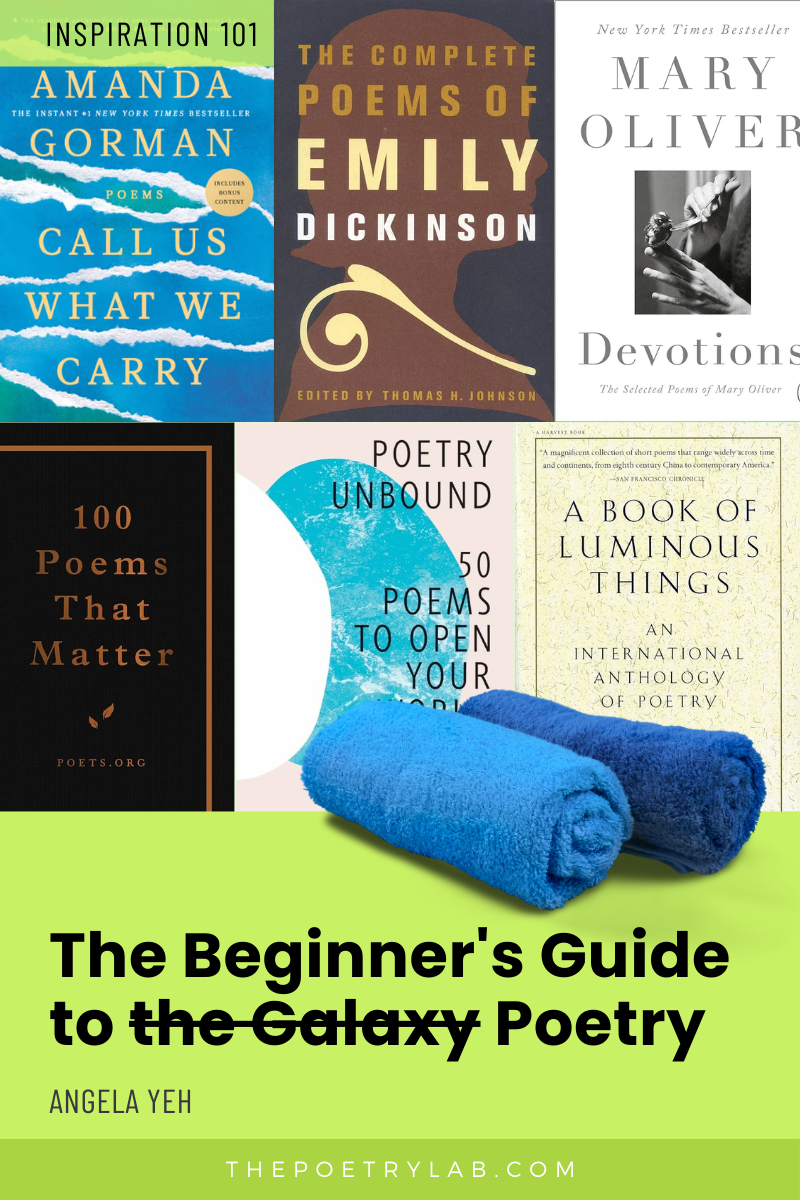The Beginner's Guide to Poetry: How to Find Inspiration and Why It Matters
Recently, I admitted to a co-worker that I wrote and (occasionally) published poetry. It felt like admitting that I still listened to Milli Vanilli. (Hey, the 80s are coming back, baby.) She looked at me like I had eight heads, and I know for sure I have only the one.
Some of us listen to Milli Vanilli (like, no names, definitely not me) and work full-time jobs while taking care of kids, and poetry is the thread that knits every piece of our lives back together again. Myself included
Even though I will (probably) never complete a master's degree or create a social media empire, having an established writing habit gives me a solace I cannot overstate. We are meant to live in peace, in daily moments of creativity. We just are. And life does not always offer a smooth road. Sometimes the ride is bumpy, and the hits just keep coming. And with all that bumping around, who has the time to read, let alone write?
But if you can take the crap life throws at you and spin it into a poem or a short story…girl (and boy), you have won life. You’ve done it.
If that all sounds like too much, I’d love to show you how at least reading poetry can add the spice you are missing to your life. Or, if you prefer, it can be the swirl of chocolate in your coffee. It might even be the hazelnut whipped cream in your coffee. Yum.
Why You May Feel Meh About Poetry
Maybe it was Dr. Seuss. He made it look so easy that it seemed like child's play, something done for children and not for serious people. It’s easy to diss poetry, to reduce it to the past, to awkward scribbles in our teenage diaries, never to see the light of day.
Or maybe it’s the opposite, and poems seem too academic and complicated. There is certainly no shortage of people who will look down their nose at you if you admit you don’t know what a haiku is. But they’re ridiculous, and we can ignore them because they don’t know REAL poetry, not with their hearts. (If they did, they’d be kinder.)
Poetry isn’t elite; it’s street. Poetry is the most visceral art form there is. It’s with us every day. It’s like sleeping and breathing. This sentence is a poem. Everything is a poem. My single blue mug in the sink, the rumbling yellow school bus on a black ribbon highway. It’s the moment you see your kid after being apart all day. It’s when you lay your head down at night, and the anxious thoughts stop swirling when you see the crouching shadow of a cat hunting by moonlight. You know it when you see it.
Would you like to see poetry in your daily chores or your hour-long commute? Let’s start by reading it.
Who to Read When You Think Poetry Is Weird and Complicated
We will break this down like eggs in cake batter, my friends! These poets speak to me because their poetry is earthy, direct, and profound. In a complex world, their words cut through the noise. Mary Oliver, in particular, stands out in these hectic modern times as someone who had found redemption in nature.
Mary Oliver
Mary Oliver is accessible, lovely, simple, and profound at the same time. Her work was largely passed over by the male-dominated academic circles of her time. (Wonder why?)
Fun Fact: She would hide pencils in trees so she could stop to write during her walks.
A Little Taste: A clip of Mary reading Wild Geese, one of her most beloved poems.
Emily Dickinson
I’m a sucker for the classics. Her garden was her church, and her poems perch in the soul and sing of hope and never stop at all. You’ve heard her poetry quoted in songs and movies, and if you’ve ever shrugged your shoulders and said, “the heart wants what it wants,” you can thank Emily. I’m not too proud to say that I’ve said this over chocolate cake right before I eat way too much.
Fun Fact: Only 10 of Emily Dickinson's nearly 1,800 poems are known to have been published in her lifetime.
A Little Taste: “Hope” is the thing with feathers.
Amanda Gorman
In 2021, she became the youngest poet to write and read her work at a United States presidential inauguration for President Joe Biden with The Hill We Climb.
Fun Fact: In 2017, Gorman told The New York Times that she wanted to run for president in 2036. She’s got my vote.
A Little Taste: Hear her speak her poem over the nation.
If that isn’t to your taste, there is always Robert Frost, William Ernest Henley, and Octavio Paz—the list is inexhaustible. There are so many poets, almost one for every mood you’ve ever been in or will be.
Start with the few up here and see where that leads you. Remember, this is just the beginning list, a scratch on the surface of a teeming world of outstanding poets.
Poetry Anthologies
Or, before committing to a single poet, you can try a poetry anthology. With an anthology, you can get a lot of different voices, experiences, and types that will lead you to something that will change your life, move you, or just make you laugh.
Follow the feeling. If something hits you, reach out for more.
Poetry Anthologies to Try:
A Book of Luminous Things: An International Anthology of Poetry, edited by Czeslaw Milosz, provides a great introduction to various poets worldwide.
Poetry Unbound: 50 Poems to Open Your World, hosted by Pádraig Ó. Tuama, focuses mainly on poets writing today. This anthology has the bonus of being hailed as a “window through which to celebrate being alive.” That’s a window I’d love to look through.
100 Poems That Matter, put forward by The Academy of American Poets, is a terrific start for anyone looking to catch the poetry bug. Featured poets include Emily Brontë, E.E. Cummings, Kahlil Gibran, Audre Lorde, and Emily Dickinson.
Chocolate for Your Soul
It’s all going to be okay—I promise.
A coworker recently told me abstract things stress her out, so she “hates” poetry. I get it. We’re not all comfortable with ambiguity. With feeling, at all, but that’s a topic for another article.
If you’ve got a logical mind and being creative feels awkward, just do what the yogis do and take a deep breath. It’s all going to be okay. You don’t need to be anything other than what you are. Don’t change anything. If you can drink a Starbucks coffee or enjoy a glass of wine, you can “do poetry.”
The only thing you need to know to find a poem you like is to understand that reading a poem is sensual (meaning, enjoyable, not sexual, although there are plenty of those, too!). The flavors (words) in the poem and their placement—like savoring the smell of the wine before you drink it—matter. Where the words are, what they are, and how they sound when you read them out loud.
Every word is chosen intentionally or by happy accident to contribute to the whole experience. Think of it like chocolate for your soul. You don’t need a fancy degree to close your eyes and savor a Hershey’s Kiss.
Lastly, you're missing out if you aren’t reading it out loud. Swirl it around on your tongue before you swallow. Look for poems you hate and spit them out; it doesn’t matter. Every poem you read will tell you a bit about yourself and open your eyes to a way of seeing the world you would never have known before.
You've done something incredible if you can experience a few choice poems that touch your soul.
And hey, why don’t you try writing a few? Don’t worry, you don’t have to tell anybody! (Unless you want to).
Now get that bowl of Hershey’s Kisses, that Hazelnut Whipped Cream Coffee, and sit down to read “Baked Goods” by Aimee Nezhukumatathil.
Enjoy!
This article was published on October 7, 2024. Written by:







